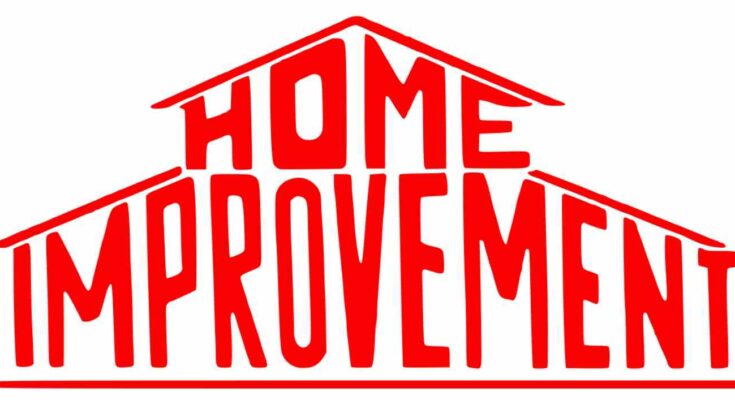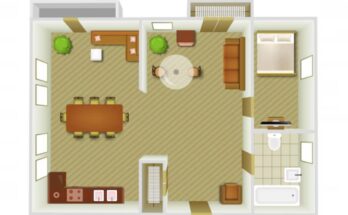Home improvement is a journey that not only enhances the aesthetic appeal of your living space but also increases the functionality and value of your property. Whether you’re a seasoned DIY enthusiast or a homeowner looking to hire professionals, the possibilities for improving your home are virtually limitless. In this comprehensive guide, we will explore various aspects of home improvement, from planning and budgeting to executing projects and maintaining your upgrades.
Introduction to Home Improvement
Home improvement encompasses a wide range of activities aimed at enhancing the comfort, aesthetics, and functionality of a home. These activities can include renovations, repairs, upgrades, and even landscaping. The motivation behind home improvement projects can vary, from increasing property value and addressing safety concerns to simply updating the look and feel of your living space.
Planning Your Home Improvement Project
The success of any home improvement project begins with careful planning. Here are the key steps to consider when planning your project:
- Identify Your Goals: Determine what you want to achieve with your home improvement project. Are you looking to increase the value of your home, enhance its energy efficiency, or simply refresh its appearance?
- Set a Budget: Establish a realistic budget for your project. This should include the cost of materials, labor, permits, and any unexpected expenses that may arise.
- Research and Gather Ideas: Look for inspiration from home improvement magazines, websites, and social media platforms. Create a vision board or a list of ideas that align with your goals and budget.
- Create a Timeline: Develop a timeline for your project, taking into account any seasonal considerations and the availability of contractors if you plan to hire professionals.
- Obtain Permits: Check with your local government to determine if your project requires any permits. Failing to obtain the necessary permits can result in fines and delays.
- Hire Professionals: If your project requires specialized skills, such as electrical work or plumbing, consider hiring licensed professionals. Obtain multiple quotes and check references before making a decision.
Popular Home Improvement Projects
There are countless home improvement projects you can undertake to enhance your living space. Here are some of the most popular ones:
1. Kitchen Remodeling
The kitchen is often considered the heart of the home, and a well-designed kitchen can significantly increase your home’s value. Key aspects of kitchen remodeling include:
- Cabinet Refacing or Replacement: Updating your cabinets can dramatically change the look of your kitchen. Choose from a variety of materials and finishes to match your style.
- Countertop Upgrades: Replacing old countertops with materials like granite, quartz, or butcher block can add both beauty and functionality to your kitchen.
- Modern Appliances: Upgrading to energy-efficient appliances can save you money on utility bills and improve the overall efficiency of your kitchen.
- Lighting: Install new lighting fixtures, such as pendant lights or under-cabinet lighting, to enhance both the aesthetics and functionality of your kitchen.
2. Bathroom Renovation
A bathroom renovation can transform a mundane space into a luxurious retreat. Key aspects of bathroom renovation include:
- Fixture Upgrades: Replace outdated fixtures with modern, water-saving options. Consider installing a new toilet, sink, and showerhead.
- Tile and Flooring: Update your bathroom with new tile or flooring. Options like ceramic, porcelain, and natural stone can add a touch of elegance.
- Vanity and Storage: Choose a stylish vanity with ample storage to keep your bathroom organized and clutter-free.
- Lighting and Ventilation: Proper lighting and ventilation are essential in a bathroom. Consider installing a new exhaust fan and lighting fixtures to improve functionality and ambiance.
3. Energy Efficiency Improvements
Improving the energy efficiency of your home can reduce your utility bills and decrease your environmental footprint. Key energy efficiency improvements include:
- Insulation: Add or upgrade insulation in your attic, walls, and basement to keep your home comfortable year-round.
- Window Replacement: Replace old, drafty windows with energy-efficient models to reduce heat loss and improve indoor comfort.
- HVAC Upgrades: Invest in a high-efficiency heating and cooling system to reduce energy consumption and improve indoor air quality.
- Solar Panels: Consider installing solar panels to generate renewable energy and potentially earn tax credits or incentives.
4. Outdoor Living Spaces
Creating outdoor living spaces can expand your usable living area and provide a place to relax and entertain. Key outdoor improvement projects include:
- Deck or Patio: Build a deck or patio to create an outdoor living area for dining, lounging, or entertaining.
- Landscaping: Enhance your yard with landscaping features like flower beds, shrubs, and trees. Consider adding a garden or water feature for added appeal.
- Outdoor Kitchen: Install an outdoor kitchen with a grill, sink, and counter space to make outdoor cooking and entertaining more convenient.
- Lighting: Use outdoor lighting to highlight landscaping features, improve safety, and create a welcoming atmosphere.
DIY vs. Hiring Professionals
When it comes to home improvement, you may be wondering whether to tackle the project yourself or hire professionals. Both options have their pros and cons:
DIY Home Improvement
Pros:
- Cost Savings: Doing the work yourself can save money on labor costs.
- Personal Satisfaction: Completing a project on your own can be incredibly rewarding.
- Flexibility: You have complete control over the project timeline and design choices.
Cons:
- Time-Consuming: DIY projects can take longer to complete, especially if you have limited experience.
- Skill Requirements: Some projects require specialized skills that you may not possess.
- Risk of Mistakes: Mistakes can be costly and time-consuming to fix.
Hiring Professionals
Pros:
- Expertise: Professionals have the skills and experience to complete the job efficiently and correctly.
- Time Savings: Hiring professionals can save you time, allowing you to focus on other tasks.
- Quality Assurance: Professionals are more likely to deliver high-quality results.
Cons:
- Cost: Hiring professionals can be expensive, especially for large projects.
- Limited Control: You may have less control over the project timeline and design choices.
- Finding Reliable Contractors: It can be challenging to find reputable contractors with good references.
Budgeting for Home Improvement
Budgeting is a critical aspect of any home improvement project. Here are some tips to help you manage your budget effectively:
- Set Realistic Expectations: Determine what you can afford to spend and set realistic expectations for your project.
- Prioritize Projects: If you have multiple projects in mind, prioritize them based on your budget and goals.
- Get Multiple Quotes: Obtain quotes from several contractors to ensure you’re getting a fair price.
- Plan for Contingencies: Set aside a contingency fund for unexpected expenses that may arise during the project.
- DIY Where Possible: Consider tackling smaller projects yourself to save on labor costs.
Maintaining Your Home Improvements
Once you’ve completed your home improvement projects, it’s essential to maintain them to ensure they continue to add value and functionality to your home. Here are some maintenance tips:
- Regular Cleaning: Keep your home clean and free of debris to prevent damage and prolong the life of your improvements.
- Inspect and Repair: Regularly inspect your home for signs of wear and tear and address any issues promptly.
- Seasonal Maintenance: Perform seasonal maintenance tasks, such as cleaning gutters, checking for leaks, and servicing HVAC systems.
- Protect Against Pests: Take measures to protect your home from pests, such as sealing cracks and keeping food stored properly.
Conclusion
Home improvement is a rewarding endeavor that can transform your living space, increase your property’s value, and improve your quality of life. Whether you’re planning a small DIY project or a major renovation, careful planning, budgeting, and maintenance are key to achieving your goals. By investing in your home, you’re not only enhancing its aesthetic appeal but also creating a more comfortable and functional living environment for you and your family.




